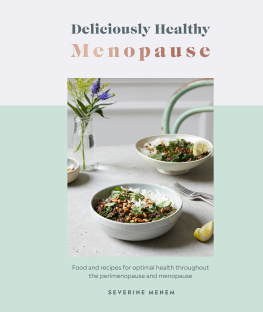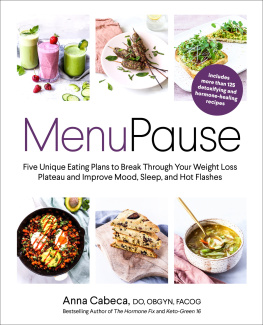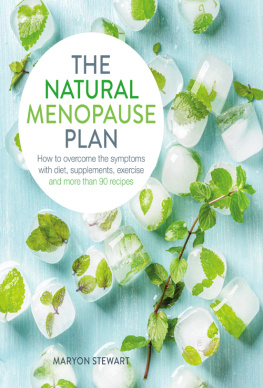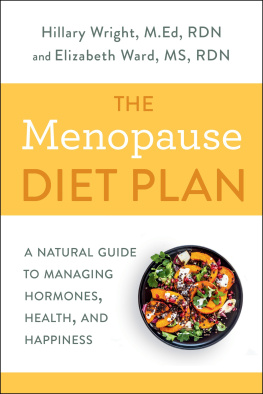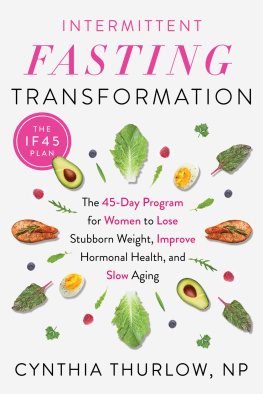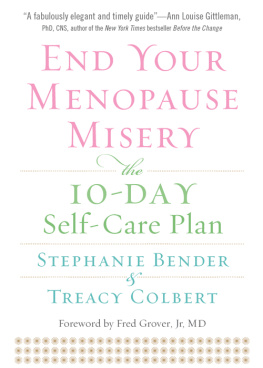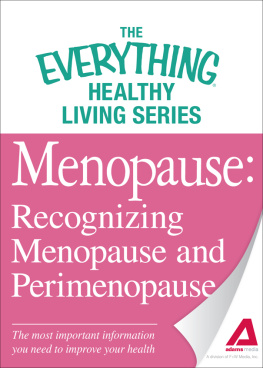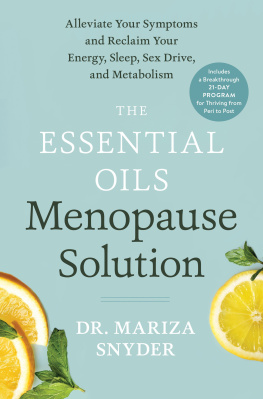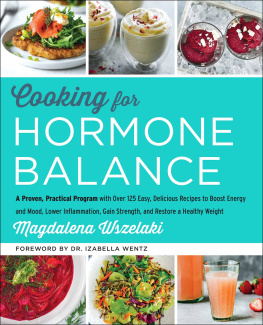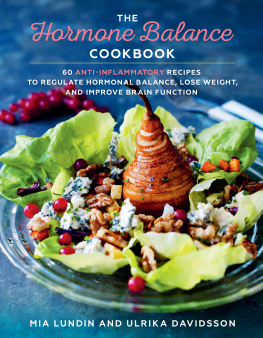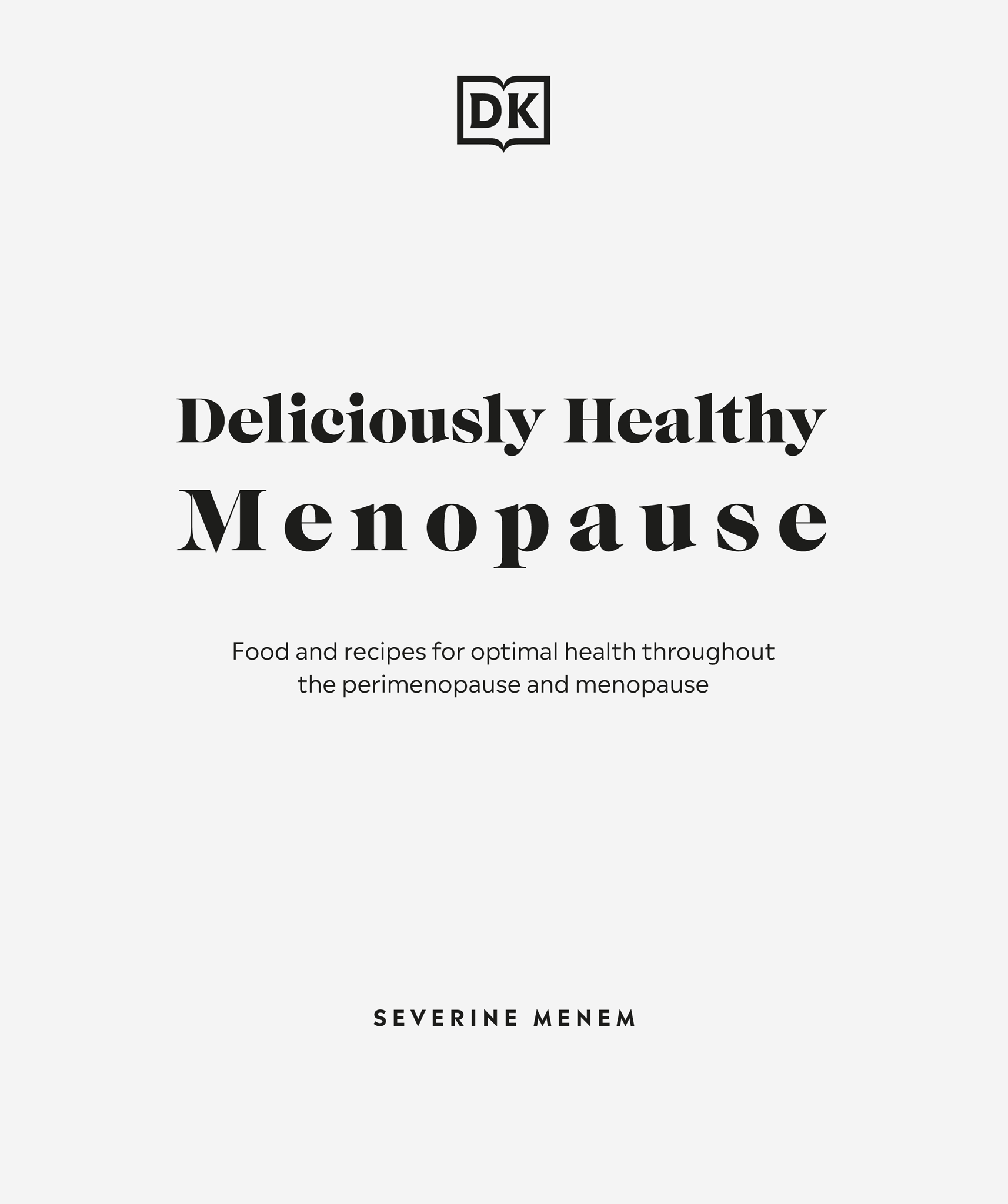CONTENTS
Contents
g
How to use this eBook
Preferred application settings
For the best reading experience, the following application settings are recommended: Orientation: Portrait
- Color theme: White background
- Scrolling view: [OFF]
- Text alignment: Auto-justification [OFF](if the eBook reader has this feature)
- Auto-hyphenation: [OFF](if the eBook reader has this feature)
- Font style: Publisher default setting [ON](if the eBook reader has this feature)
- In Settings, change the font size to a size you are most comfortable with.
g
Preface
We live in a wonderful time when the menopause is no longer taboo in many parts of the world. The reality of the menopause is often shared in the media, from articles in mainstream news outlets, to the BBC campaign, Wake Up to the Menopause . Excellent charities, such as Daisy Network and The Menopause Charity, inform women on what is happening in the menopause and what they can do about it. Corporates are launching menopause initiatives to support their employees, and secondary school students are being taught about the menopause. Women in midlife no longer have to go through the menopause alone.
Despite this flow of information, the message often remains the same: the menopause is a miserable transition in a womans life with terrible symptoms, for which the only solution is HRT. Although beneficial, HRT is not a magic pill and is not always easily accessible to every woman: from getting an appointment quickly, to contraindications to taking HRT, to actually being prescribed HRT and being able to receive it (there have been chronic shortages of some types), women can encounter obstacles. Furthermore, HRT doesnt always resolve all menopausal symptoms.
More surprisingly, most women readily acknowledge they would rather try something natural before taking HRT. They often find, though, that there is too little information on natural approaches or that information is hard to access, so they turn to HRT.
There are a number of natural solutions that can help with symptoms. As a nutritional therapist specializing in the menopause, I can help midlife women improve their health, so they in turn lose weight and find relief from their symptoms. Nutritional therapy focuses on the principle that health can be achieved through a holistic and personalized approach to nutrition and lifestyle. Health comes from looking after our nutrition, sleep, fitness, and stress levels.
It is not emphasized enough that women can have an easy menopause; in fact, studies suggest that about one in four women do. The earlier you prepare, the more likely you are to have an easy, or easier, transition. The menopause tends to make existing conditions worse, so addressing concerns ahead of the menopause and/or updating your lifestyle is very likely to result in positive outcomes. Its never too late to start making positive changes.
While each woman is different, Im aiming to make this book accessible to everyone who wants to understand why and how they can amend their diet and lifestyle to best prepare for or help with the menopause. The delicious recipes in the book are ones that the whole family can enjoy and include ingredients to help alleviate symptoms and optimize health. Its an holistic approach and consistency will yield the best results, giving you an excellent foundation for a healthy menopause.
Food is life, so I hope you enjoy my colourful and flavoursome recipes, inspired by my travels around the world. The menopause can be very enjoyable, we just need to make it work for ourselves.
Severine Menem
g
Living well
for the menopause
Living well for the menopause | Contents
g
The menopause years
The menopause is a natural transition in a womans life. Officially, the menopause is defined as not having had a period for 12 months, but reaching this point is a gradual process that can take place over a number of years. Understanding what is happening to your hormones and body during this time, the symptoms you may experience, and what you can do about them can help you put in place lifestyle measures to cope and enjoy a good quality of life in the menopause and beyond.
Why does the menopause happen?
The menopause is triggered by a low number of eggs in the ovaries, which impacts the production of oestrogen and other sex hormones. The fluctuations in these hormones and their varying ratios cause most . In the UK, the average age for the menopause is 51, although it is common for women to go through the menopause anywhere between the ages of 45 and 55.
The perimenopause
This describes the period leading up to the menopause, which can last for several years. During this time, egg stores drop and ovarian hormone levels fluctuate randomly, initiating changes in the menstrual cycle and, often, the onset of menopausal symptoms. Menstrual changes vary considerably between women, with periods becoming longer or shorter, heavier or lighter, and more or less frequent. For most women, the perimenopause heralds the onset of menopausal symptoms, typically vasomotor symptoms such as hot flushes and night sweats, which 80 per cent of women experience. Usually these occur for four years after the last menstrual period but they can last much longer. Although the chances are very low, it is still possible to become pregnant now so contraception should continue to be used.
The menopause and post-menopause
The point 12 months after the last menstrual period (without using contraception) marks the official end of a womans natural reproductive life, when she is menopausal and enters post-menopause. While menopausal symptoms typically last for about four years after the end of menstruation for most women, they can continue for up to 12 years for around 10 per cent of women.
Premature and early menopause
Around 5 per cent of women experience the menopause between the ages of 40 and 45, known as early menopause.
For a very small number of women, the menopause takes place before their forties in their thirties or, rarely, in their twenties or earlier. This is referred to either as premature menopause, premature ovarian failure, or primary ovarian insufficiency (POI). Around 1 per cent of women experience a spontaneous POI, often with no known cause, which can be extremely hard to cope with psychologically. Some known causes of POIs include autoimmune diseases and inherited conditions, such as galactosaemia. An increasing number of women enter premature menopause as a result of surgery (the removal of one or two ovaries and/or the uterus) and cancer treatments such as chemotherapy or radiotherapy, which can have a damaging effect on the ovaries.

